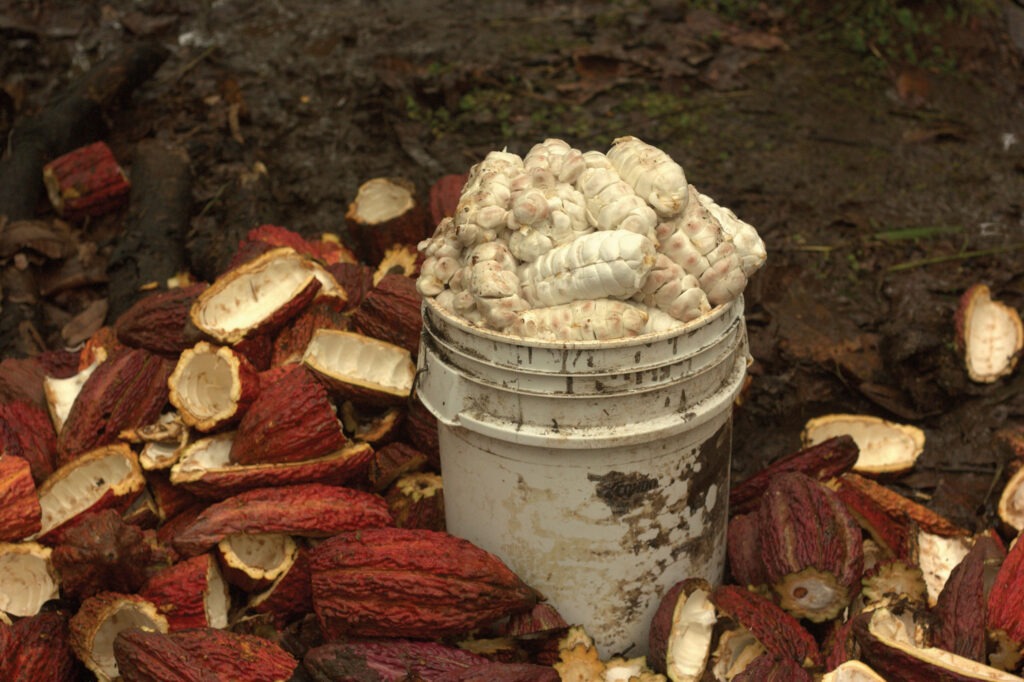Mars achieves another 1.9% absolute greenhouse gas emission reduction
Mars Incorporated has published its 2024 Sustainable in a Generation report, revealing that the company has taken further steps to reduce its carbon footprint. By the end of 2024, Mars achieved an additional 1.9% absolute reduction in greenhouse gas emissions compared to its 2015 baseline, while revenue grew by more than 69%, approaching $55 billion.
 Poul Weihrauch, CEO of Mars, stated:
Poul Weihrauch, CEO of Mars, stated:
“I am pleased to see that we continue to decouple company growth from carbon emissions while supporting innovation and embracing startups that are developing new solutions to resilience challenges. These are critical areas to make measurable progress in reducing future environmental risks, which can ultimately be turned into benefits and competitive advantages. While there will certainly be setbacks in the future – something we fully anticipate – our goal remains unchanged: to grow, to develop, and to reduce our impact on the planet while creating benefits for all.”
In 2024, Mars focused on partnerships that support innovative agricultural practices and deforestation-free supply chains. The number of climate-smart agricultural projects rose above 60, covering 13 crop types in 29 countries. Together with partners, Mars is working to reduce energy consumption in its direct operations and introduce farming methods that regenerate soils and prepare farmers for risks such as floods, droughts, or pests. Key recent projects include:
- Livelihoods Fund for Family Farmers (L3F): By 2024, 932 farmers in North Sumatra earned RSPO (Roundtable on Sustainable Palm Oil) certification, 2,031 hectares were converted to new farming practices, and 8,000 hectares of forest were preserved thanks to community-based conservation efforts.
- KIND Almond Acres Initiative: Mars nearly doubled the size of its pilot area, with first-year irrigation data showing a 17% efficiency gain thanks to subsurface irrigation systems.
- Moo’ving Dairy Forward sustainable dairy program: The company committed $47 million over three years to reduce emissions related to dairy. Working with farmers, suppliers, and researchers, Mars aims to drive positive long-term changes toward a more sustainable sector.
- RESTORE project: Supporting sustainable cocoa farming while protecting and restoring forests. Goals include tree planting, creating landscape governance bodies, and developing new income opportunities for cocoa-farming communities.
- Sustainable Aromatic Rice Initiative (SARI): In Thailand, the program now reaches 1,445 farmers in Roi Et and the Central Plains region, 66% of whom are women. Rice yields increased by 43% in Roi Et and 10% in the Central Plains, while water use dropped by 56% and 41%, respectively.
Sustainability has long been a core principle for Mars. In 2024, the company expanded its senior leadership group from 400 to nearly 2,000, linking compensation not only to business performance but also to emissions reduction – further strengthening its commitment to responsible operations.
Alastair Child, Chief Sustainability Officer at Mars, added:
“We are committed not only to setting long-term goals but also to delivering tangible progress in the present. This means integrating social impact objectives into business decisions. In the long run, systemic change is required across supply chains, where governments, industry, and farmers must act together. We know we cannot achieve this alone – we want to engage our partners, because only large-scale change will allow us to reach our shared goals.”
Recognizing the role of science and innovation, Mars announced the creation of the Mars Sustainable Investment Fund (MSIF), with up to $250 million in total capital. The company plans to deploy these funds through investment vehicles and direct investments. The program focuses on three main areas:
- Advanced agriculture: technologies that reduce emissions from agricultural inputs;
- Innovative ingredients: lower-emission or healthier alternatives to existing components;
- Next-generation packaging: circular economy-based solutions, focusing on replacing plastics with recyclable, compostable, or nature-friendly materials.
The report also reveals that in 2024 Mars contributed to 3.5 billion healthy meals – including 309 million servings of fiber and 372 million servings of vegetables – while reducing sodium content by 5% compared to 2019 levels. Through its value chain, the company impacted more than 850,000 people, while advancing sustainability in packaging: 64.1% of consumer packaging is now recyclable, reusable, or compostable.
Related news
Orbit® Refreshers launches a new giveaway
🎧 Hallgasd a cikket: Lejátszás Szünet Folytatás Leállítás Nyelv: Auto…
Read more >Fashion, drones and sustainability – the new face of agriculture at the AgriTech InnoExpo event
🎧 Hallgasd a cikket: Lejátszás Szünet Folytatás Leállítás Nyelv: Auto…
Read more >A lake of wastewater is generated in Hungary in two to three weeks
🎧 Hallgasd a cikket: Lejátszás Szünet Folytatás Leállítás Nyelv: Auto…
Read more >Related news
Innovations, success stories and awards on the same stage
🎧 Hallgasd a cikket: Lejátszás Szünet Folytatás Leállítás Nyelv: Auto…
Read more >Farewell day at the 60th anniversary EuroShop trade fair
🎧 Hallgasd a cikket: Lejátszás Szünet Folytatás Leállítás Nyelv: Auto…
Read more >NAV: Women’s Day inspections begin
🎧 Hallgasd a cikket: Lejátszás Szünet Folytatás Leállítás Nyelv: Auto…
Read more >








